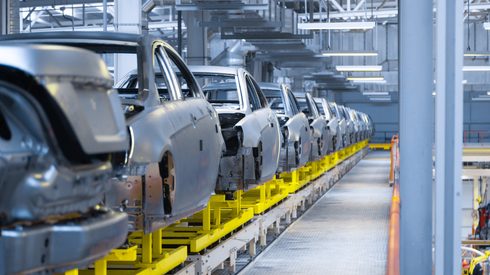Germany-based Primobius is owned equally by Australia-based Neometals and German plant manufacturer SMS Group. It has received an order to commission a shredding unit with capacity for 10 tonnes per day, 2,500 tonnes per year, for the carmaker.
The company will be responsible for engineering, equipment supply and installation of a fully integrated, closed-loop lithium-ion battery (LIB) recycling plant at Kuppenheim.
Collection and transport of products for recycling remained a challenge for economical and viable recycling for many companies. A recycling target of at least 15% was set as one of the targets in the European Commission’s Critical Raw Materials Act (CRMA).
Primobius and Mercedes were trying to achieve this efficient collection and processing of materials by using a hub-and-spoke model. This works by creating regional recycling processing centers within larger communities that serve as hubs, and encouraging smaller communities, the spokes, to deliver their recyclable materials to the hubs.
The benefits of the hub-and-spoke model include reductions in transport and operating costs, building economies of scale by pooling recyclables together and strengthening relationships with end-markets.
“The spoke is ready to be offered to our business development pipeline, and the hub will soon be product-ready,” Chris Reed, managing director at Neometals, said.
The Mercedes LIB recycling plant in Kuppenheim will recover raw materials such as lithium, cobalt, nickel and manganese. These will be fed back into the production of a targeted 50,000 battery modules for installation into new Mercedes vehicles.
The origins of the batteries at the Kuppenheim facility will be “test vehicles, start-up batteries and possibly returns from the field,” Mercedes said in a statement on March 3. These will comprise lithium-ion batteries from plug-in hybrid and electric vehicles.
The recovery rate at the Kuppenheim facility was expected to be more than 96% overall. This will include materials such as cobalt, nickel and lithium, and in future also graphite, through a mechanical-hydrometallurgical process.
The spoke installation was scheduled to start operations in the fourth quarter of this year, with commissioning to start in the first quarter in 2024.
“The Mercedes spoke [commission] marks a significant Primobius milestone,” Neometals said. “It represents the first commercial recycling plant supply agreement to a global electric vehicle OEM [original equipment manufacturer], and the first significant revenue.”
Want more insights and forecasts for the battery recycling and black mass market?
Keep up to date with global market insights and predictions for the battery recycling market with the Fastmarkets NewGen Battery Recycling Outlook.






